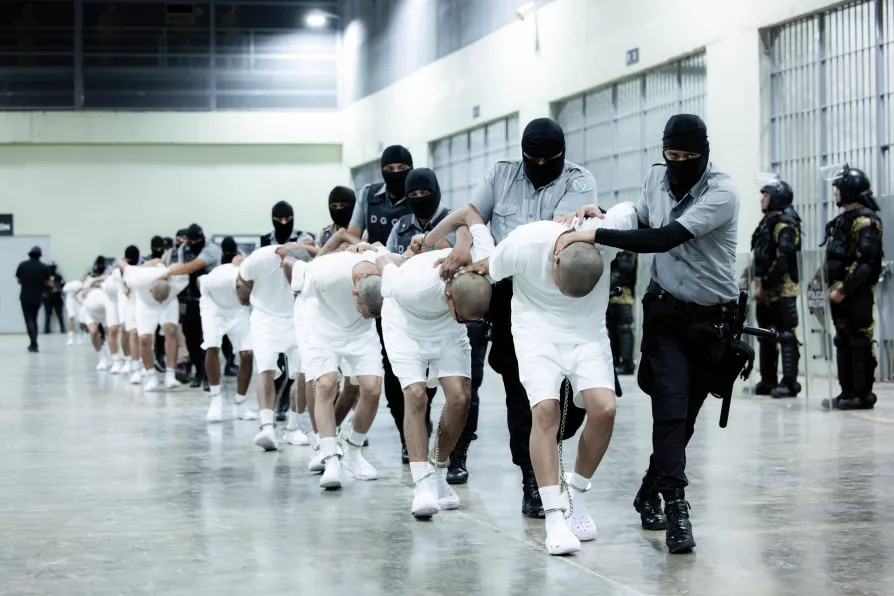John Wojcik pays tribute to a black US activist who spent six decades at the forefront of struggles for voting rights, economic justice and peace – reshaping US politics and inspiring movements worldwide
Trump, ‘irregular warfare,’ and El Salvador's mega-prison
Without due process, hundreds of Venezuelans living in the US have been arrested, slandered as terroristic criminals and sent flown in chains to El Salvador’s notorious mega-prison under an obscure 18th-century law, reports JOHN PERRY

 GLEEFULLY BRUTAL: Prison guards transfer deportees from the US, alleged to be Venezuelan gang members, to the ‘terrorism confinement’ prison known as Cecot, in Tecoluca, El Salvador, March 16 2025
GLEEFULLY BRUTAL: Prison guards transfer deportees from the US, alleged to be Venezuelan gang members, to the ‘terrorism confinement’ prison known as Cecot, in Tecoluca, El Salvador, March 16 2025
EL SALVADOR’S Centro de Confinamiento del Terrorismo (Cecot) opened in 2023. It has the capacity for up to 40,000 prisoners, although is said to be only half-full.
Cecot was built to incarcerate alleged members of violent gangs, who by 2015 had made El Salvador the western hemisphere’s most dangerous country.
Dispensing with warrants and court hearings, in 2022 the government jailed almost 2 per cent of the population, many on the basis only of their tattoos. The official murder rate fell from 18 per day to one every three days.
Similar stories

Calls have been made for the return to Venezuela of a two-year-old girl currently being held in the US, after being separated from her family by immigration officials, reports SUSAN GREY

Under Trump, the hunt for migrants has reopened — resulting in a mass deportation of innocent Venezuelans to a notorious mega-prison in El Salvador. MARC VANDEPITTE tells the story of 24-year-old barber Francisco Casique whose tattoos and country of origin were enough to make him disappear behind bars without trial











